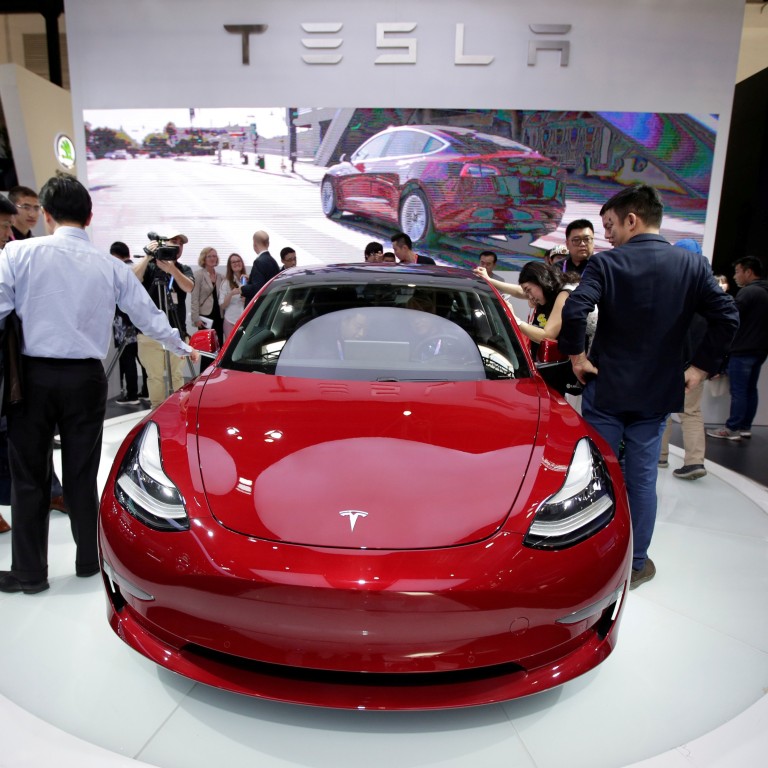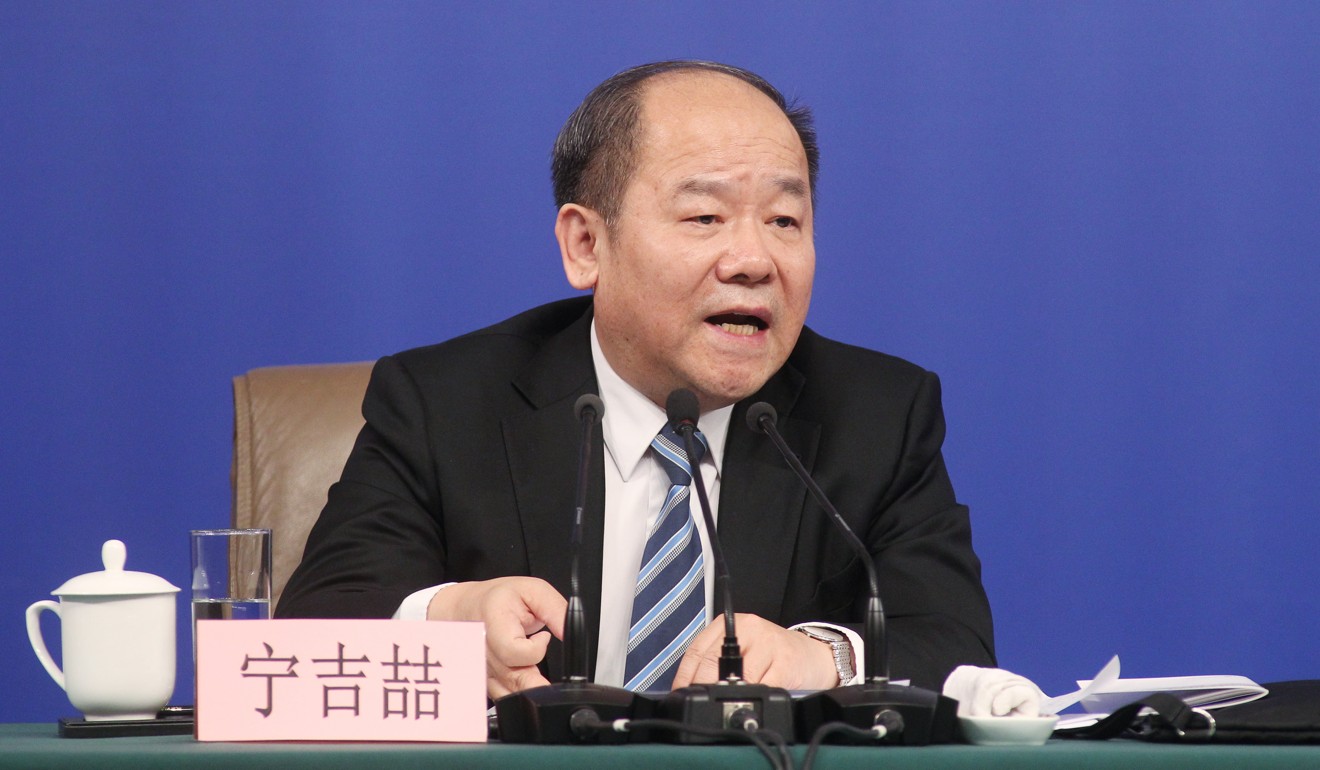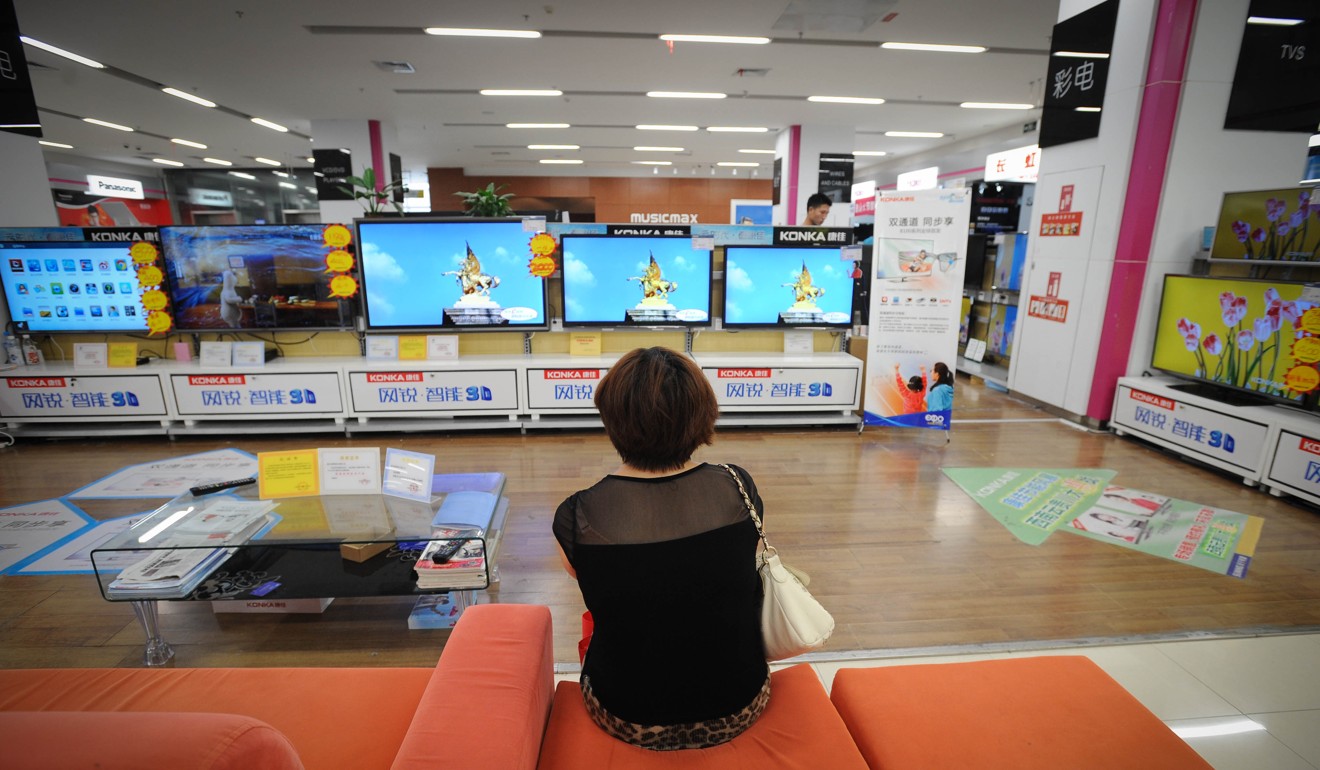
China to roll out new consumer spending incentives for cars and home appliances to offset trade war
- Overall Chinese retail sales growth decelerated in November to its lowest rate in 15 years, despite record e-commerce spending on Singles’ Day
- Moves follows decision by Central Economic Work Conference last month to expand domestic consumer spending this year to achieve ‘high-quality growth’
China is planning to roll out a new set of incentives this year to encourage the country’s 1 billion consumers to buy more items like cars and home appliances as part of a wider effort to stabilise economic growth, a senior state planner said.
The comments by Ning Jizhe, vice-chairman of the National Development and Reform Commission (NDRC), China’s top economic planning agency, followed the decision by the Central Economic Work Conference last month to expand domestic consumer spending this year to achieve “high-quality growth” and offset the impact of the trade war with United States.
Overall Chinese retail sales growth decelerated in November to its lowest rate in 15 years, despite record e-commerce spending on Singles’ Day.
Chinese consumer confidence remains weak on economic worries
Car sales, which account for nearly 30 per cent of the country’s goods sales, suffered the first annual decline in over 20 years after dropping 6 per cent in 2018, according to the China Passenger Car Association.
One cause for the slowdown, analysts said, was the end of a government incentive to purchase cars with smaller engines.
Sales of home appliances, especially air conditioners, have also continued to slow since the trade war began in July alongside a cooling housing market.
“The auto market has reached a scale of nearly 30 million units, but it still has potential,” Ning said in a television interview with the state-run CCTV on Tuesday.
Chinese carmakers rise after China vows to boost spending on autos
He suggested that Beijing would target support for purchases of new energy vehicles (NEV), with Ning noting that the NDRC would push ahead with the approval of a second batch of NEV projects using foreign investment including factories to manufacture cars and batteries.
The first batch of projects included US electric carmaker Tesla setting up a factory in Shanghai.
Tesla to assemble cheaper version of Model 3 electric cars in China
Ning also said China would give incentives to citizens in rural areas to buy cars.
Consumer spending per capita by citizens in rural areas grew 9.8 per cent in the first three quarters of last year, much faster than the growth of total spending of 6.3 per cent, according to data from the National Bureau of Statistics.

The promise of new purchase incentives comes a year after the end of the previous round of incentives at the end of 2017.
Authorities had successfully supported car sales through tax subsidies since 2015, but experts said it was the expectations created by the previous incentive programme that had caused the current weak domestic car market.
“The decline in China’s auto market [last year] has something to do with the preferential policies of the previous two years, which used up the [purchase] demand of many consumers,” said China Association of Automobile Manufacturers vice secretary general Yao Jie.
“We need to rely on the market to achieve the transformation of companies and the survival of the fittest.”
Chinese carmakers rise after China vows to boost spending on autos
Lu Ting, chief China economist at Nomura International in Hong Kong, said the previous purchase incentive programme had extended the replacement cycle for consumer durables, suggesting that any new incentive policy might not have much of an effect in the short term.
The NDRC did not disclose when Beijing would introduce the new incentive package and the precise nature of the measures that would be included.
Economists at Goldman Sachs Gao Hua Securities, led by Yu Song, predicted that the support package would be rolled out in the first quarter of the year, since consumer concerns that there might be a significant slowdown in the Chinese economy would be especially high around the Lunar New Year period, when most companies in China shut down.

“Should expectations worsen, there is a possibility that many of these companies may not reopen,” they wrote.
Chinese consumer confidence stabilised at a very weak level in the fourth quarter, well below that of a year earlier, according to data released on Wednesday by Capital University in Beijing.
“In terms of auto stimulus, tax breaks have been the most frequently used tool in the past,” the Goldman economists said.
“Fiscal policy has traditionally been used to stimulate home appliance consumption.”
Trade war: Chinese factory prices slow more than expected in December
In the past, China has implemented a policy to subsidies appliance purchases in rural areas, although the term “fiscal policy” was not further elaborated on by the Goldman economists.
The NDRC’s Ning also said state planners would introduce policies in house leasing and services, with plans to lower investment barriers in other sectors such as culture and sport.

